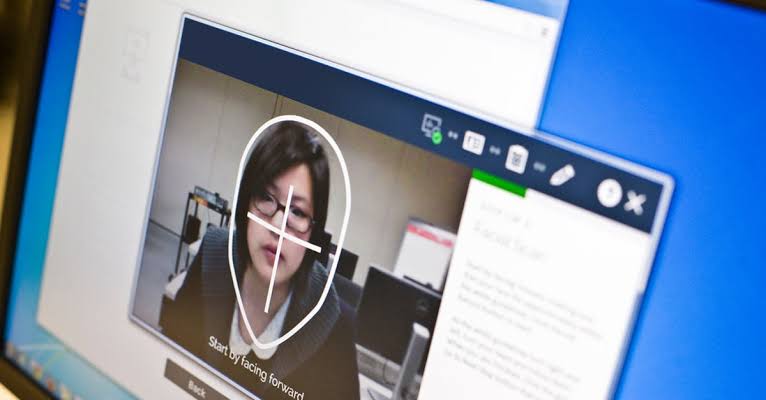Students Are Easily Cheating ‘State-of-the-Art’ Test Proctoring Tech
.jpeg)
- Miss Ai
- 07 Jun, 2024
Students Are Easily Cheating ‘State-of-the-Art’ Test Proctoring Tech
Students are using HDMI cables and hidden phones to cheat on exams administered through invasive proctoring software like Proctorio
A student uses a laptop to study in a dimly lit room.
LEON NEAL / GETTY IMAGES
“I’ve taken online exams cheating and not cheating and they are just about as stressful anyways so fuck it, am I right?”
That’s what one French student who had cheated on multiple remote exams administered through the popular digital proctoring software Proctorio told Motherboard in a voice message.
With the COVID-19 pandemic continuing to rage around the globe and no quick end to remote learning in sight, many students have found themselves taking exams under the watch of proctoring software like Proctorio, which surveils students through algorithmic systems that, among other things, detect eye movements, track keyboard strokes, and monitor audio inputs.
Universities sometimes shell out thousands of dollars per exam for Proctorio, which helps at least give the impression that academic integrity is being maintained during remote learning. But for some students using Proctorio and other online proctoring services is invasive and anxiety-inducing, subjecting them and their surroundings to unwarranted surveillance that is difficult to refuse without their studies being negatively affected.
Yet, even though popular online proctoring platforms like Proctorio claim that they use “state-of-the-art technology” and “ensure the total learning integrity of every assessment, every time,” students are cheating on their exams anyways.
Motherboard spoke to 10 university students from various countries who claimed to have cheated on exams where Proctorio was in place. While their motivations and techniques varied, there was one common denominator: none of them got caught.
The relative ease with which the students cheated, and the fact that each student could point to multiple peers who had done the same (one American student estimated that 90 percent of her class had cheated), raises the question of how effective online proctoring software like Proctorio is—and whether it is worth the hefty price tag or the invasion of privacy.
“With Proctorio you need to show yourself and your room with the computer’s webcam,” one Dutch student who had helped a friend cheat on a multiple choice exam told Motherboard. “My friend put a phone on a stand on his keyboard so it couldn’t be seen during the room and desk sweep.”
“Then we FaceTimed with me at the other end,” she continued. “The phone was at a slant so he could see me and I could see the exam. Then I would just hold up a flashcard with a, b, c, or d.”
Another French student used a 10-meter HDMI cable that ran from his laptop to a TV screen in another room that mirrored his screen. His friend would then look up the exam answers and send it via WhatsApp to his phone, which was also on the keyboard and out of sight of the webcam.
“Worked perfectly and got a good grade,” he said.
Other students used less elaborate techniques, such as one Italian student who wrote notes in pencil on her laptop and a Brazilian student who simply spreadsheets of notes on the floor.
“For one exam I just printed out my notes using a large font and stuck them to the wall in front of me out of view,” one German student who had successfully cheated on multiple exams said, laughing. “I would just look around the room as if I was thinking about an answer and then glance at it.”
In a statistics exam that allowed calculators, that same student stuck a small piece of paper behind the calculator so it would be hidden from view during the desk sweep.
There are other more technical cheating options as well. A test taker could feed faked audio or video through a virtual device, which can simply be renamed to avoid Proctorio’s blacklist. This same renaming trick can also be used to run Proctorio within a virtual machine.
While Proctorio claimed in an email to Motherboard that it offers a native application offering more sophisticated techniques for detecting these types of tricks, it also said that its native application is usually not an option for universities because of privacy regulations.
It’s important to note that in the case of Proctorio, there are a number of settings that instructors can turn on or off for exams, including whether the software will check for extended screens and whether a desk sweep is required. Furthermore, instructors can also set ‘sensitivity values’ for a range of activities when reviewing an exam, including audio levels, video manipulation, and eye movement.
But whether higher sensitivity values actually catch more cheating or just create a flood of false positives remains an open question.
Maximilian Seiderer is a Master’s student studying computer science at the Technical University of Munich in Southern Germany. Skeptical of the effectiveness of Proctorio and finding the software “creepy,” he decided to file a subject access request under Europe’s General Data Protection Regulation (GDPR) to see the recording of his exam—something easy to do for any student residing in the European Union. A university staff member later walked Seiderer through the Proctorio interface and his exam recording. He also received a PDF report containing frames and timestamps where Proctorio had flagged ‘abnormal’ behavior.
Flagged timestamp and frame from a post-exam
report generated by proctorio. This moment was apparently flagged because the
“audio level in the room was above threshold” and “the test taker looked away
from the exam page.”
“I wanted to see how Proctorio functioned from the instructor’s perspective and I was also curious to see if it had captured the moment I had put in a snus [tobacco pouch],” Seiderer told Motherboard. “I got to see what was flagged, which was mostly audio-level violations. When the staff member turned up the sensitivity settings it was a literal sea of red flags, which were of course false positives. I can’t imagine anyone seriously using that interface.”
“Throughout the process, I kind of got the impression that everybody feels like they have to do something to ensure the integrity of the exams but they don’t really believe in it,” he continued. “I’m disappointed that my university pays for that type of snake oil.”
In an email and later a phone call in response to a set of questions sent by Motherboard, a Proctorio spokesperson emphasized that their software is an integral means to maintaining academic integrity and that they welcome a robust conversation regarding privacy.
“Proctorio is designed to prevent fraud through a variety of different proctoring options,” a spokesperson wrote. “The combination of available proctoring methods (e.g. video, audio, device lock-down options) are currently the best possible protection. In the area of exam proctoring, there is competition from professional ‘cheating service’ providers (e.g., payforexams.com, chegg.com).”
“Currently, online exams are the only option when it comes to giving students access to testing, which ultimately prevents negative career effects due to missed deadlines,” the spokesperson continued. “Exam results demonstrate the competencies and achievements required for academic advancement and further employment. An exam process that is aligned with the requirements of the pandemic is a basic requirement for degree programs.”
Some students who spoke to Motherboard said that the fact that they were forced to use this software actually made them more likely to cheat as an act of rebellion. Others said that the COVID-19 pandemic had left them feeling isolated and unmotivated when it came to their studies, but still felt the pressure to pass courses to avoid delays.
“Corona wasn’t hitting me very well and I lost track,” the same student who had used the HDMI cable trick said. “I had zero motivation to actually work and life was so fucked up and weird. And then of course there was the fact that it was sort of a ‘fuck you’ to Proctorio. I’m not going to say that was the main reason, but it certainly was part of it.”
While Proctorio and other proctoring companies often present their software as a necessary evil in the context of a pandemic, instructors have argued there are other, (more effective ways of preventing academic fraud. This can be through designing test environments that prevent cheating without using surveillance, or through adjusting course structures to base final grades on other forms of assessment, such as an average of a few interim assignments or an open-book exam. Online proctoring software is certainly the easy way, but that doesn’t mean it is always the right way.
As for students who have seen how easy it is to actually cheat on exams with online proctoring software, the ones that Motherboard spoke to didn’t think too highly of the universities that are using them.
Leave a Reply
Your email address will not be published. Required fields are marked *












